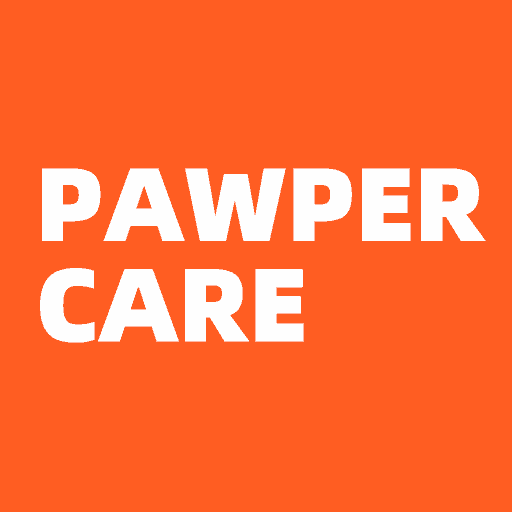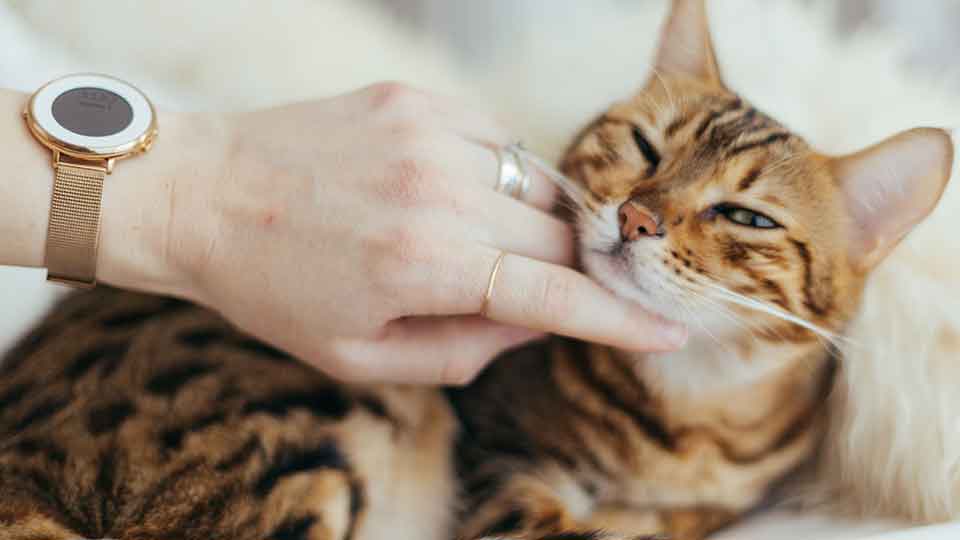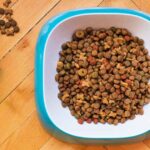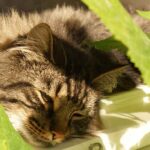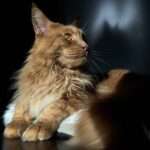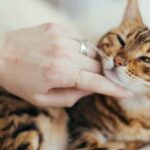Maine Coon cats are very strong and can live a long time. But even these big, healthy cats need to see the vet regularly to stay happy and well. Catching problems earlier keeps little issues from becoming big ones.
Vet visits for shots, exams, prevention, and illness treatment all help your Maine Coon stay in good shape. But how often should you go? The right frequency depends on their age, medical needs, and health. With the proper schedule of vet trips, you can be sure your Coon cat is getting the care they need.
About Maine Coon Cats
To make good choices about your Maine Coon’s vet visits, it helps to know some facts about them:
They often live 12-15 years. Their care needs have changed over the years.
Their large size makes them prone to joint problems when they are older.
Maine Coons can have certain heart conditions. Catching these early is very important.
They can also get kidney disease. And their long fur needs more brushing and grooming to avoid mats and skin irritation.
Knowing what health issues may affect them allows you to focus on the right things during vet visits. Discuss any specific concerns with your vet too.
LINK
Why Regular Vet Visits Are Important
One key to helping your Maine Coon live a long, healthy life is seeing the vet regularly. Here’s why routine vet care matters so much:
Vaccines prevent dangerous contagious diseases like rabies, leukemia, panleukopenia, and more.
Medicines for parasites like heartworms, fleas, and ticks keep your cat illness-free.
Finding problems early means treatment works better before they get really bad.
Preventive tests like bloodwork find hidden issues not visible on the outside. Dental cleanings and exams prevent disease and help them eat properly. And vet’s advice on nutrition and weight keeps their diet on track.
Regular vet trips protect your Maine Coon’s well-being in many important ways at every life stage.
How Often to Visit the Vet
In general, Maine Coons should see the vet:
Kittens: Every 3-4 weeks until 16 weeks old; then every 6 months.
Adults: Yearly exams; plus semi-annual visits as they get older.
Seniors: Twice a year; yearly at minimum for healthy seniors. Go more often if needed.
Of course, each cat may need their own schedule. Here are more details by age:
Kittens Need Lots of Vet Visits
From 8-16 weeks old, Maine Coon kittens should see the vet to get:
- Vaccines: Boosters every 3-4 weeks are needed for full protection.
- Deworming: Multiple treatments ensure parasites are fully gone.
- Exams: To check development and detect any birth defects early.
- Guidance on when to spay/neuter: Vets advise the ideal timing.
After finishing shots and deworming around 4-5 months old, an annual visit provides preventive care. Keep doing exams every 6 months while they rapidly grow those first couple of years.
Adult Maine Coons Need Yearly Exams
For adult Maine Coons aged 1-7 years, a yearly visit allows the vet to:
- Give core vaccines like rabies, panleukopenia, calicivirus, and rhinotracheitis.
- Do a full physical exam to check eyes, teeth, heart, lungs, skin, joints, and all body systems.
- Discuss any behavior, appetite, or habits changes that could signal an issue.
- Update parasite prevention medication for heartworms, fleas and ticks.
- Run bloodwork and urinalysis to check organ function and watch for early disease signs.
Yearly exams give your adult Maine Coon a thorough health review when they are in their prime. Track any issues closely between visits.
Senior Maine Coons Should Be Checked More Often
For Maine Coons over 8 years old, vets suggest:
- Complete exams every 6 months to closely monitor aging changes.
- Semi-annual bloodwork, urinalysis, and blood pressure checks to catch problems like kidney disease early.
- Heart tests to diagnose heart conditions before they get severe.
- Dental cleanings twice a year to maintain oral health.
- Get nutrition advice if appetite or weight changes happen.
- Exams whenever new symptoms show up. Many assume signs of illness are just “old age.”
Frequent senior vet visits can help your older Maine Coon stay healthy longer and allow early treatment when age-related diseases happen. Make their preventive care a priority.
Signs Your Maine Coon May Need the Vet
Between regular visits, watch for these signs of illness requiring prompt veterinary attention:
- Loss of appetite or sudden weight change
- Lethargy, weakness, or balance problems
- Eye discharge or excessive tearing
- Sneezing, coughing, wheezing, or labored breathing
- Changes in drinking or peeing habits
- Changes in litter box use like increased frequency, larger volume, straining, or accidents
- Vomiting, diarrhea, or constipation lasting over 24 hours
- Skin changes like hair loss, sores, lumps, or itchiness
- Signs of pain like decreased activity, whining, aggression, or hiding
- Drooling, bad breath, mouth swelling, or tooth issues
Trust your instincts. You know your Maine Coon best. When in doubt, call your vet to be safe. Waiting too long can make things worse.
Choosing the Right Vet
To ensure good care for your Maine Coon, find a vet who:
- Has experience with Maine Coons and other big cats
- Provides a cat-friendly office with safe handling approaches
- Listens to you fully and addresses all your concerns
- Explains things clearly using words you understand
- Allows urgent add-on appointments when needed
- Is available by phone/email for follow-up questions
- Keeps detailed medical records to track changes over time
- Offers services like boarding, grooming, or hospice if needed
Visit the office to check cleanliness, feel, and how well staff handle cats. A skilled, caring vet leads to better care experiences and outcomes for your Maine Coon.
Preparing Your Cat for the Vet
To make vet trips less stressful for your Maine Coon, you can use calming synthetic pheromone sprays in their carrier before visits.
Take short rides in the carrier to fun places so they don’t associate it only with the vet.
Use a calming shirt or wrap during rides for security. And bring a favorite toy or blanket with familiar scents.
Request handling approaches to reduce restraint needed for exams. Many Maine Coons do better lying on a table than being held.
You can also give treats during the exam and visit to create positive associations.
Planning ahead makes vet visits calmer and keeps your Maine Coon from hiding when they see their carrier!
Caring for Your Cat Between Vet Visits
To maintain your Maine Coon’s health and happiness between check-ups:
- Brush their coat frequently to prevent mats and distribute skin oils.
- Trim nails regularly to protect joints and furniture.
- Provide interactive playtime and cat towers or scratchers daily.
- Feed them high-quality food that is right for their life stage.
- Do training activities and games to stimulate their brain.
- Monitor litter box habits, appetite, and behavior for changes.
- Weigh monthly to catch subtle weight changes.
- Examine their skin and coat for abnormalities.
Getting Pet Insurance for Your Maine Coon
One important way to cover costs for your Maine Coon’s ongoing vet care is pet insurance. Policies help pay for accidents, injuries, and illnesses over their long lives.
Pet insurance lets you say “yes” to needed vet treatment without money worries. Main types of coverage include:
- Accident/injury coverage – Helps pay for fractures, cuts, bee stings, and other immediate traumas.
- Illness coverage – Assists with expenses for conditions like cancer, kidney disease, diabetes, hyperthyroidism, dental infections, and more.
- Wellness coverage – Contributes to routine costs like vaccines, exams, bloodwork, dental cleanings, and preventives.
- Hereditary coverage – Ensures breed-specific conditions are covered.
Compare costs, reimbursements, annual limits, exemptions, and customer service when choosing Maine Coon appropriate insurance.
Sign up when young and healthy since pre-existing conditions may be excluded later. With help covering vet bills, you can focus on your Maine Coon’s care, not financial stress.
Understanding Vet Tests for Maine Coons
To fully evaluate your Maine Coon’sCoon’s health and diagnose issues early, your vet may recommend:
Complete blood count (CBC) – Checks blood cells, platelets, and proteins to reveal anemia, infection, inflammation, cancer, etc.
Chemistry panel – Measures kidney and liver function, electrolyte levels, blood sugar, and protein levels. Very helpful for senior cats.
Urinalysis – Screens for urinary tract infections, kidney disease, diabetes. Important for male Maine Coons prone to blockages.
Thyroid test – Identifies hyperthyroidism, a common senior cat hormone disorder.
Leukemia/FIV test – Important for rescued Maine Coons with unknown history.
Heartworm test – Checks for heartworms transmitted by mosquitos.
X-rays – Used to diagnose bone/joint disorders, cancer masses, organ enlargement, foreign objects, etc.
Ultrasound – Evaluates abdominal organs like kidneys, bladder, and heart.
Biopsies – Taking tissue samples to identify certain cancers and diseases.
While symptoms alert you to bring your Maine Coon in, diagnostic tests help vets pinpoint the specific issue to plan the right treatment.
Giving Medication to Your Maine Coon
If your vet prescribes medication:
Always follow label directions exactly and finish the full course.
Use tasty treats, pill pockets, or mixing into food to help them swallow pills.
Hold your cat gently but firmly when giving oral medication. Position yourself carefully to avoid scratches.
For eye or ear drops, position their head up and gently pull down the eyelid or ear flap to give the medication. Offer a treat after.
Make medication time consistent by establishing a routine location and method.
Watch for any concerning side effects and call your vet right away if they happen.
Never give human medications without asking your vet first.
With patience and proper technique, you can successfully give important medications to your Maine Coon.
Nutrition Tips for Maine Coon Health
Diet is very important for your Maine Coon’s health now and in the future. Follow these nutritional guidelines made for their needs:
Feed high protein, low carb food to match their active, muscular build.
Choose wet or raw food since Maine Coons often don’tdon’t drink enough water.
Pick kibble-sized for their bigger jaws or break pieces to avoid gum injury.
Discuss life stage nutrition plans for your Maine Coon with your vet.
Feed scheduled, portion-controlled meals instead of free feeding to prevent obesity.
Weigh monthly and adjust food based on activity to maintain ideal lean body weight.
Limit unhealthy people’s food, snacks, and table scraps.
The right nutrition tailored to their needs will keep your Maine Coon energized and enriched.
Keeping Their Teeth Healthy
Maine Coon’s big jaws make them prone to dental disease. Help their teeth stay healthy with:
Daily tooth brushing: Use cat-safe finger brushes and enzymatic paste. Go slowly with positive rewards.
Dental treats: Look for VOHC-approved brands proven to reduce tartar.
Raw bones: Give raw chicken wings or necks a few times weekly under supervision. Avoid cooked bones.
Water additives: Some dental water additives inhibit bacteria and plaque.
Regular cleanings: Maine Coons need professional vet dental cleanings at least yearly.
Oral exams: Have your vet check their teeth at every visit.
Conclusion
Following the proper schedule of vet visits is critical to protecting your beloved Maine Coon’s health and longevity. While they are strong cats, preventive care is vital to help your Maine Coon live a whole life.
Use the recommended guidelines and your trusted vet’s advice to catch any issues early. With diligence and dedication to their well-being, your amazing Maine Coon will stay by your side for years to come.
